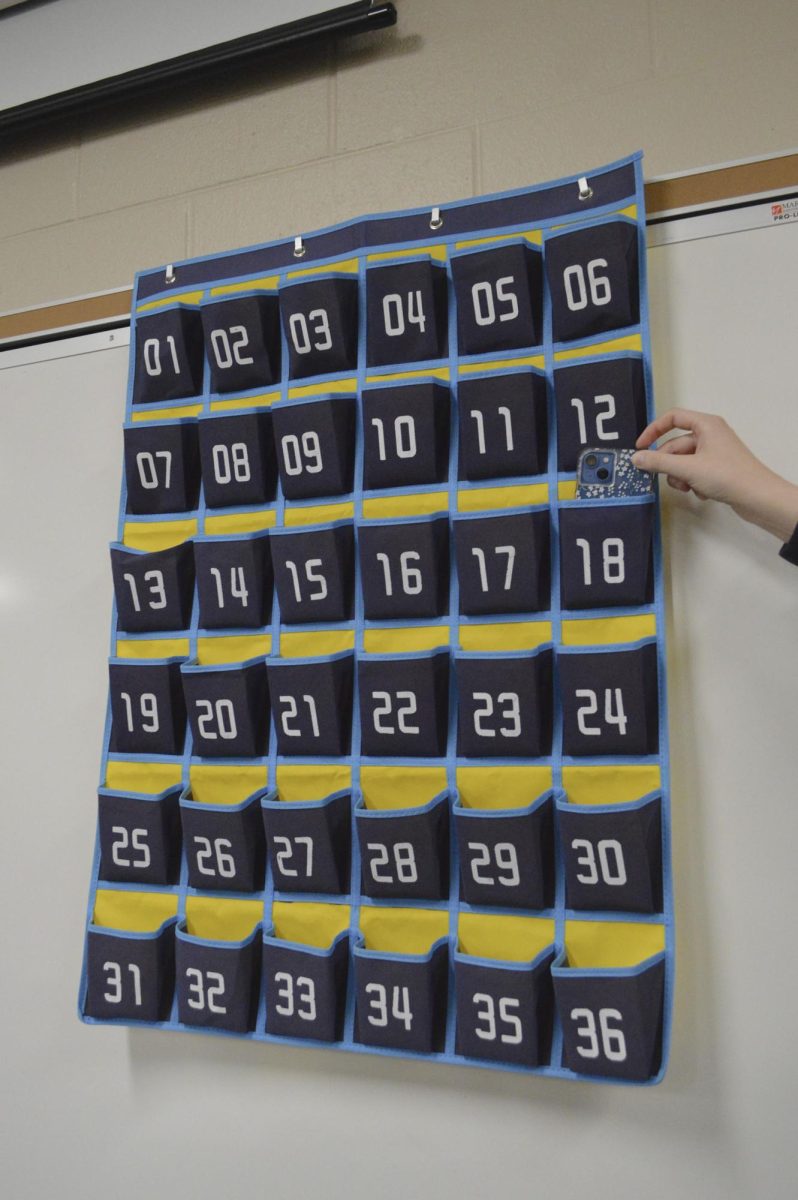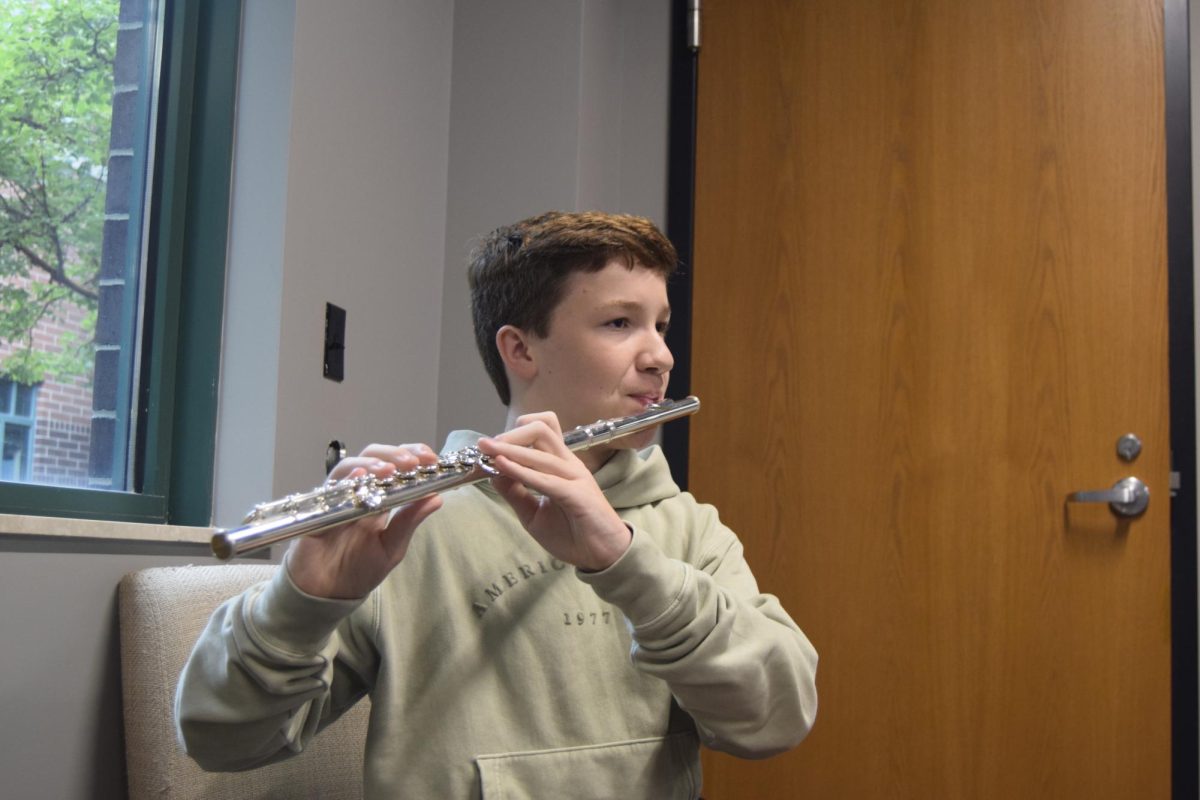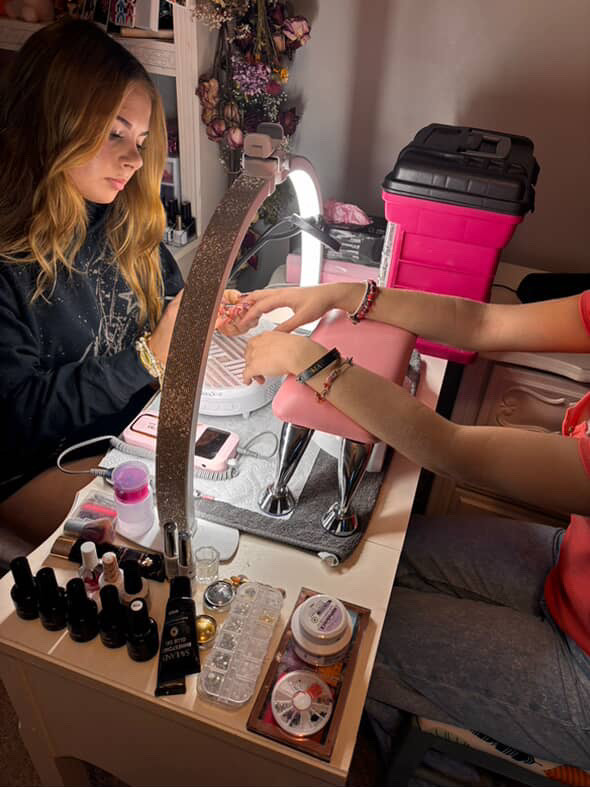They appear everywhere teenagers go—in pockets, in pencil bags, and on desks laying in plain sight, but most often simply in hand. Entire lives can be contained in a small rectangle, just six-by-two inches, with pictures, conversations, and secrets all stored inside. Students are used to having their phones within reach at every moment of the day, but a recent law seemed poised to throw that into jeopardy.
Indiana Senate Bill 185, recently signed into law, “prohibits a student from using a wireless communication device during instructional time.” There are some exceptions here, with these devices allowed when a teacher has given permission, in the event of an emergency, for health reasons, or if it is included in a student’s individualized education program. While it may be easy to assume that this new law would lead to several changes for students around NHS, Noblesville Schools superintendent Dr. Daniel Hile explains that things won’t be too different.
“I do not see the new law as a significant change from what most districts are already doing,” Hile said. “The intent of this law is to minimize distractions during instructional time, which I think most people would agree is a reasonable goal.”
Hile adds that devices will still be able to be carried by students throughout the day. This is good news for students like sophomore Lizzy Eger, who finds comfort in having her phone with her.
“The one way this law will affect me is my ability to be in contact with my mom when I am struggling with anxiety,” Eger said. “I suffer from test taking and school performance based anxiety, and I enjoy having my phone with me just in case I have a panic attack or need the support from my parents/friends.”
In order for students to have more specifics on the school’s policy, NHS students will be able to view the school’s policy when they return to school in August.
“During our annual review of our student handbooks, we have ensured that our handbook language for next school year aligns with the new law,” Hile said. “The new law goes into effect on July 1st, and so this updated language will apply in the fall.”
While student handbooks may look a bit different, Hile does not believe that the overall effect of this new law is very big. In his view, it simply sets students up to practice technology etiquette when they go out into the real world.
“In the end, this is just creating some additional clarity on appropriate device use during time that should be focused on instruction, which is no different than the expectations in most workplaces and common courtesy in social settings,” Hile said.
Hile’s view of the law as a way to make cell phone policy clearer is similar to the way NHS principal Dr. Craig McCaffrey understands it. McCaffrey is thankful for the help that the law provides to schools.
“I think the biggest thing that helps schools out that the legislators did is that if the teacher or the school said no, then it was the law that they could say no,” McCaffrey said. “It’s able to give schools the authority to do what we’ve been doing. I do appreciate that backing, that help and that support.”
While that support is available now to schools, it doesn’t mean that teachers won’t still have their own policies. Variation in classroom policy is specifically okayed by the law, and McCaffrey describes why.
“Different classrooms are different environments,” McCaffrey said. “Maybe in a class where you’re doing notes, a lecture, discussion, yeah you want them put away. But if you’re doing individual work, the teacher may let you.”
As different teachers’ decisions on how phones are used in the classroom vary, this can lead to students using phones in different ways even during class. Eger motives this even now, and this fact allowed her to get over her initially negative feelings.
“Upon hearing this news I was a little upset, but I understood why this law needed to be created,” Eger said. “In all of the classes that allow phone use, it’s obvious that phones serve as a great distraction for students. It hinders many students’ ability to pay attention in class, to finish their work, and to succeed in their classes.”
The distraction that phones can turn out to be is an idea that McCaffrey echoes, and is one of the main reasons that he believes that this bill will be able to help students.
“Phones are made to be addictive,” McCaffrey said. “They’re made to try and get your attention, with how all the algorithms work.”





















